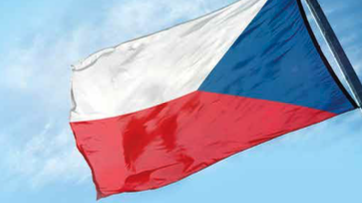…and see what he had to say about the role of the President
 Dear readers, friends, and partners,
Dear readers, friends, and partners,
In January, the people in the Czech Republic elected their new president for the next five years. The voter turnout in the second round was little above 70% and Petr Pavel won with 58.33% of the vote, thus becoming the second Czech president elected in the direct presidential elections.The new president assumed office on 9th March 2023.
We would like to congratulate the new president on behalf of the Czech & Slovak Leaders magazine. In his election campaign, President Pavel promised „order and stability” for the country. When he talked about Václav Havel, the first Czechoslovak president after 1989, he uttered these words: “Václav Havel was the president who always listened to others.” We think that it might be a good idea to listen to Václav Havel too, and to see what he had to say about the role of the president.
“It would be rather foolish to ask the candidate for the office of the Czech president to present his own complete „political program” for legislative and executive leadership of the state. The Czech president will not be the head of the executive branch or majority leader in Parliament, but merely an indirectly elected official with a very specific position and mission defined in the Constitution.
Only one thing may be asked of him legitimately: a vision regarding the purpose of the office‘s constitutional and political status and the ways in which he would fulfil this purpose, and a conception of values that he would guard and pursue as the head of state through his powers and public activities.
The president is meant to be a guarantor, or intermediary, of the continuity of state power, and a representative of the country‘s identity and integrity – after all, he represents the country abroad. He should be a certain constant of the constitutional and political system, a „fixed star,” an institute of „last appeal,” and a permanent certainty in the midst of the dynamics of democratic development.
He should not be involved in everyday political disputes as a political subject fighting and competing on the political stage. For this reason, he should not identify too strongly with any of the existing political parties. The exercise of everyday politics is up to governments, or more precisely to the political parties that make up governing coalitions, not up to the president. The president clearly should not appear on the TV screen daily to solve all possible„issues of the day.” He should be felt in the background as a guarantee of the legitimacy of those solutions.
Instead of concentrating on the „technical” substance of various political disputes, he should concentrate on the way, or style, in which they are resolved. To put it simply: instead of being a „player” himself, he should watch over the rules of the game.
The president therefore should not favour contact with political parties over contact with all other important organizations (from churches to trade unions). Through these contacts with civic society as a whole, he should permanently emphasize that only manifold and independent civic interaction leads to true democracy and creates a truly inspirational environment for political parties, which are a basic instrument of democracy, but not its purpose and goal.
Based on this general understanding of his role, I see as an important task for the president his care for the political atmosphere in the country – the climate of public life. I am convinced that overall political stability and orderly development in our country depends on this climate more than most of us want to admit.
Among the concrete matters that should intensively and permanently interest the president first and foremost are, in my opinion, human rights. This is a field where he can act directly and in individual cases, without interfering with the competencies of other constitutional institutions or inadequately intervening in daily political disputes. This task is a consequence of a duty that a head of state should definitely have: to defend and display the basic humanist values on which the country‘s existence is based.
It is not a question of whether we will be praised or reviled tomorrow in the newspapers or in opinion polls; we were not elected to our positions to please everyone all the time! We were elected to them in the hope that we would do what we know to be in the best interest of humanity as a whole, in the interest of freedom, security and dignity for all of us, in the interest of our lives in peace and prosperity.”
With best wishes to the new president and his family,
Eva & Meshulam
We are grateful to Vaclav Havel Library in Prague for enabling us to use extracts from the article written by Václav Havel prior to his election President of the Czech Republic on January 26, published in Mladá fronta Dnes January 19, 1993; and Václav Havel ́s speech to the Czech Parliament at the end of his second term in January 2003.

